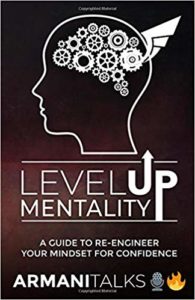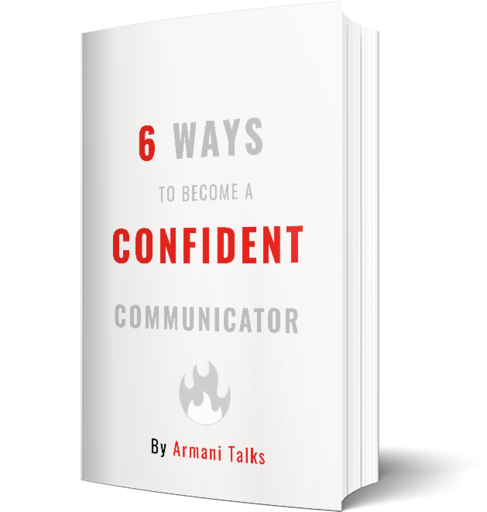How Do Toastmasters Meetings Work?
Have you ever wondered how do Toastmasters meetings work?
You may be someone who currently has massive speech anxiety.
The mere thought of speaking in front of people has you picturing the worst.
And it doesn’t matter if the audience is a size of 5 or 500.
Same nerves began to permeate you.
But lately, this has been bothering you more & more.
You realize that being afraid of public speaking is not only holding you back personally but professionally as well.
As other people are volunteering to give talks in your company to represent who they are, you sit in the corner.
Or if you are a business owner, you have been talking yourself out of giving a speech at the next conference for months.
Even though you know you are perfectly qualified…
At a certain point, you realize that speech anxiety is bad.
But not doing anything about it is worse.
So you decide to take some action.

You do your research on the internet & stumble across this club called ‘Toastmasters.’
Automatically, you are intrigued & want to know more.
How do Toastmasters meetings work?
Who goes to these meetings?
Will I actually see an improvement in my communication skills from it?
You want some answers before you attend the meeting, I get it.
And that is what we will be talking about today.
I am the former recruitment chair and External Vice President for my Toastmasters club.
Therefore, I have heard every question in the book.
It’s time to clarify the unknown so you can step foot in Toastmasters.
Let’s teach you how Toastmasters meeting work!
The Elephant in the Room: Does Toastmasters Work?
Before we continue on, you may be wondering: does Toastmasters work??
In summary, yes.
There have been dozens of people that I witnessed with very poor public speaking skills transform before my eyes.
Toastmasters allows people with massive speech anxiety to feel comfortable in a safe space.
When you understand that everyone in the club is there for the same exact reason, you end up feeling much better.
Some people want to overcome speech anxiety. Some people want to fine-tune their pre-existing skills.
But at the end of the day, people go to Toastmasters to become a better speaker.
But I do want to be very clear.
The results that you get out of the club will solely be dependent on the effort that you put in.
Don’t think going to the club every once in a while will lead to massive improvement.
You need to be consistent with your efforts.
And once you go to a meeting, make it a priority to participate!
Now you may be wondering: how do I participate?
Great question..
How Does Toastmasters Work?
There are plenty of speaking opportunities in a Toastmasters meeting.
We will talk about the 1st tier & 2nd tiers opportunities.
· 1st tier opportunities are the roles of the people who take the stage and speak.
· 2nd tier opportunities are the roles that complement the speakers or the meeting.
1st Tier:
- Table Topics
- Planned Speeches
- Evaluations
2nd Tier:
- Grammarian
- Uh Counter
- Timer
- Toastmaster
- General Evaluator
1st Tier Roles
Traditionally, you will begin with this route.
I encourage beginning with this path so you are able to immediately get skin in the game for your public speaking.
Let’s go thru each one.
Table Topics
Table topics is a segment of the meeting where people showcase their impromptu speaking skills.
The Table Topics Master for the meeting will ask for volunteers to participate & in some cases, may choose a person.
Then the participant will be given a random topic where they give a 1-2 minute presentation on it.
Table topics seem very daunting at first, but you eventually get better at it.
Planned Speeches
Back in the days, Toastmasters members would all work out of the same book & take the same route.
But recently, Toastmasters switched up their format and has incorporated the Pathways system.
Pathways allow you to choose which path you want to take in your Toastmasters journey.
Some include engaging humor, dynamic leadership & persuasive influence.
For each speech, you will be given a guideline of how to prepare your speech, the duration & effective ways in delivering it.
The only speech every path has in common is the 1st speech also known as the Ice Breaker.

Evaluator
The evaluator give an evaluation of the planned speech.
Each speaker is assigned an evaluator for the meeting who is looking for the speaker’s strengths & areas of improvement.
The evaluation traditionally lasts for 2-3 minutes.
The evaluator has a certain guideline that they follow for their critiques.
Awards
When the meeting is complete, the audience will vote on the winners!
There will be a Table topics winner, a best speech & best evaluator award that is handed out.
Getting a ribbon feels hella good & boosts your confidence even further.
But don’t make that your sole goal.
Just show up, give it your all & be pleasantly happy if you get the ribbon.
Put your primary focus on improving each talk that you give.
2nd Tier Roles
These roles are very important as well & I encourage you to volunteer for them throughout your Toastmasters journey.
Each club can differ in certain roles.
I will list out the most popular ones:
Grammarian
The grammarian stays alert & ensures that speakers are using proper grammar etiquette.
They will offer a grammarian report at the end of the meeting talking about certain grammar slip-ups of the speakers.
Also, each meeting has a ‘word of the day.’
Speakers who use that word will get some cool points.
The grammarian will be looking out for speakers who use the word of the day.
Uh Counter
The Uh Counter looks out for filler & crutch words.
–Uh, like, so, you know, right etc.
They will keep alert for those words & deliver a count for each speaker at the end of the meeting.
Timer
The timer’s job is to make sure that all speakers are staying on track!
There is a grace period that they include.
If your speech was supposed to be 7 minutes max, but you go to 7 minutes & 20 seconds, you will be good.
But if you break past the 30-second mark, then you will be disqualified.
They will often keep you aware of your speech duration with a light in the back.
They will switch from green, yellow & red to let you know which time mark you are in.
Toastmaster
The Toastmaster it the head of the meeting.
They introduce each of the roles & help transition between each segment.
They typically open the meeting & often enforce a certain theme dependent on the club.
General Evaluator
The General evaluator gives you their thoughts of how the entire meeting went & what can be improved.
They help fine-tune each meeting as a whole.
The Duration of the Meetings?

Now that you know that the club works & are familiarized with the speaking positions, you may be more tempted to join.
But you are wondering how much time you have to allocate to this venture?
There is 1 meeting per week & it lasts for 1 hour – 1 hour & 30 minutes.
The duration of the meeting depends on the club.
From my experience, smaller clubs conclude in an hour & the bigger clubs go for the full 1 hour & 30 minutes.
But I have never seen anything more than that.
Just a heads up. During the week’s that you have a planned speech, prepare to dedicate more time for the club outside of the meetings.
You will need some time to build a speech, practice thru it & fine tune.
The Toastmasters Mentor
So you may be wondering, ‘This is all cool Armani, but who actually teaches me how to public speak?’
Well, you are given a Toastmasters Mentor once you are inducted into the club.
You don’t need to be a member to give table topics.
But you need to be a member to do any of the other roles.
The Toastmasters mentor will guide you on how to build a speech, proper speaking etiquette & how to manage speech anxiety.
But they are more so there to guide you, not teach you.
The reason that Toasmasters does not particularly teach you how to public speak is because it will filter you.
The purpose of the meetings is to help you find your authentic self.
And the best way to do that is by being guided towards discovering your best self with evaluations & feedback.
Once you have gotten a few speeches under your belt, you can volunteer to be a mentor as well!
Membership Dues
Just understand that Toastmasters is not a free club.
There are dues that are involved.
I will not give exact numbers because each club differs based on the location.
With that being said, the club is highly affordable & by far one of the best investments in terms of cost to rewards ratio.
Get in touch with the admissions chair & find out the membership dues, then proceed on from there.
Allow Toastmasters to make a Leader out of You
Hands down, one of the best investments that I have made in my life is picking up Toastmasters.
I used to be a shy, unconfident kid who had trouble expressing himself.
But after going to Toastmasters, I felt as though I was a part of a community.
The community allowed me to not only network with big minds but also become a better public speaker along the way.
Since then, it has been a joy watching other people come to the meetings & becoming confident communicators as well.
It’s a great thing to have witnessed & I am excited about your journey as well.
Now you know how do Toastmasters meetings work.
Although you may have had some initial questions, hopefully, this article helped answer those questions.
Now that you have the knowledge, it is all about execution.
Find a local Toastmasters club near you & melt your speech anxiety for good!
For more tips, tricks & tactics to build your public speaking confidence, sign up to my free daily newsletter:
Sign Up
– ArmaniTalks 🎙️🔥




